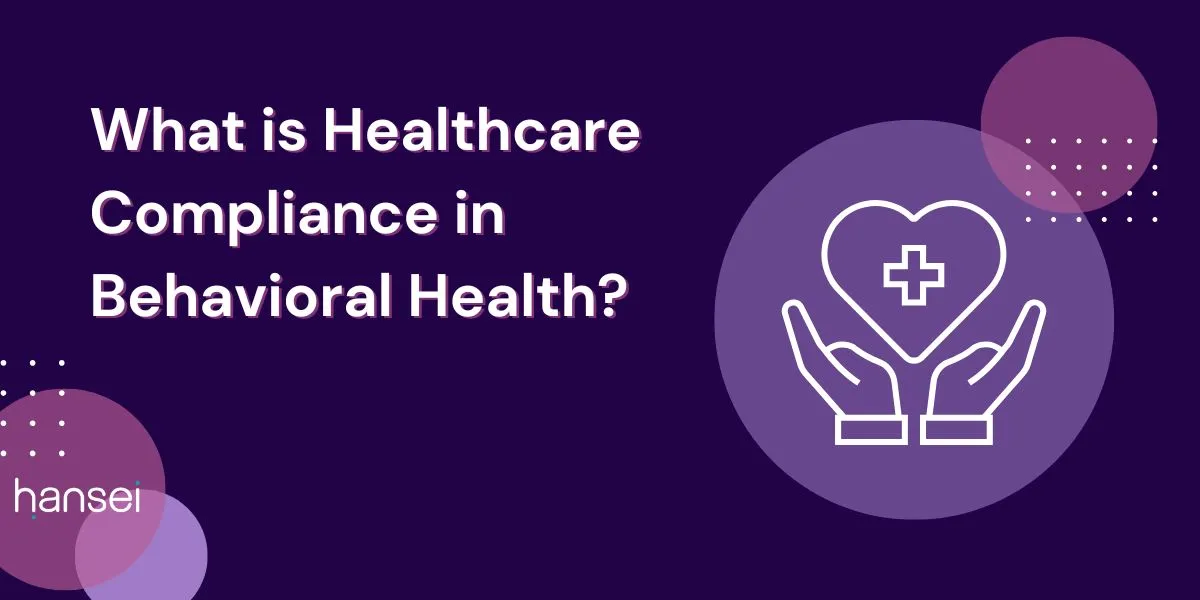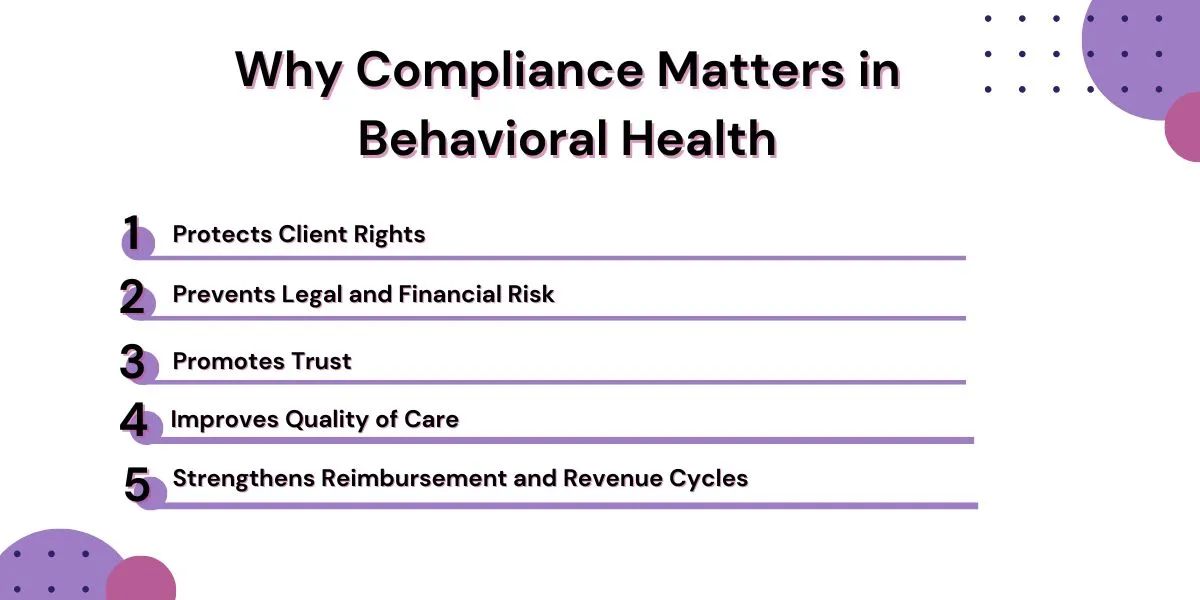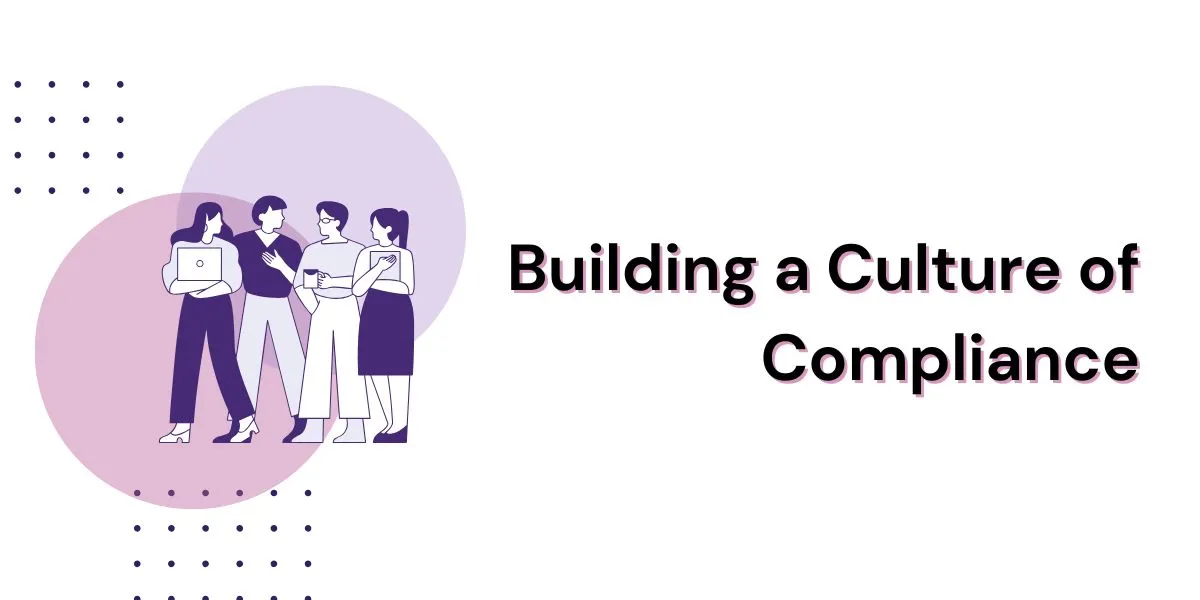Blog

In behavioral health, protecting sensitive patient information is foundational to trust and ethical care. Healthcare compliance is the process of adhering to all legal and regulatory standards, primarily HIPAA and 42 CFR Part 2, to safeguard patient data and ensure operational integrity. With hacking-related healthcare data breaches surging by 239% in recent years, robust compliance is non-negotiable.
At Hansei Solutions, we help you protect your practice. Our services are built on a deep understanding of behavioral health compliance. We ensure your billing and revenue cycle processes are secure, reducing the risk of costly violations and protecting your practice from the legal and financial consequences of non-compliance. A strong compliance plan is the bedrock of a trustworthy and sustainable practice.
Behavioral health providers have an important responsibility—not only to deliver compassionate care but also to meet strict legal and ethical standards that protect clients and ensure fair business practices. These standards fall under the umbrella of healthcare compliance.
In the behavioral health field, compliance goes beyond checking boxes. It ensures that treatment centers and practices operate transparently, safeguard sensitive client information, and follow the rules set by federal, state, and accrediting bodies. Failing to stay compliant can lead to fines, legal consequences, loss of trust, and even closure.
Understanding compliance is key for any behavioral health practice that wants to operate responsibly and sustainably.
Defining Healthcare Compliance in Behavioral Health
Healthcare compliance is the process of following established regulations, laws, and guidelines that govern the delivery of healthcare services. In behavioral health, this means:
- Adhering to federal and state laws such as HIPAA (Health Insurance Portability and Accountability Act) and the False Claims Act.
- Maintaining client privacy and confidentiality while handling sensitive information.
- Ensuring billing and coding accuracy to prevent fraud, waste, or abuse.
- Following clinical standards of care set by organizations such as The Joint Commission or CARF (Commission on Accreditation of Rehabilitation Facilities).
At its core, compliance is about integrity. It assures clients, insurers, and regulators that your practice is committed to ethical and lawful operations.

Why Compliance Matters in Behavioral Health
Compliance protects both the practice and the people it serves. Here’s why it’s critical:
- Protects Client Rights – Behavioral health often deals with highly sensitive information, including mental health diagnoses, substance use histories, and personal trauma. Compliance ensures this information is handled with confidentiality and respect.
- Prevents Legal and Financial Risk – Noncompliance can lead to significant fines, lawsuits, and loss of licensure. For example, HIPAA violations can cost thousands of dollars per incident.
- Promotes Trust – Clients and their families are more likely to engage with a practice they believe is safe, secure, and ethical. Compliance fosters this trust.
- Improves Quality of Care – Compliance isn’t just about paperwork. By following established standards, providers ensure clients receive consistent, high-quality treatment.
- Strengthens Reimbursement and Revenue Cycles – Accurate billing and coding, a major compliance area, reduces claim denials and supports the financial health of the practice.
Key Areas of Compliance in Behavioral Health
1. HIPAA and Client Privacy
The Health Insurance Portability and Accountability Act requires providers to safeguard client records and share information only when necessary. Behavioral health practices must ensure secure storage, encrypted communications, and proper staff training to prevent breaches.
2. Billing and Coding Regulations
Improper billing can result in fraud accusations—even if unintentional. Compliance requires correct coding, thorough documentation, and honest reporting. Automation tools often help practices reduce mistakes and stay aligned with payer requirements.
3. Clinical Documentation
Detailed, accurate records of treatment plans, progress notes, and client interactions are essential. Not only do they support quality care, but they also serve as proof of compliance during audits or reviews.
4. Accreditation and Licensing
Organizations like CARF and The Joint Commission provide standards for quality care. Following these guidelines not only supports compliance but also elevates the credibility of a practice.
5. Staff Training and Ethical Conduct
Compliance starts with people. Regular training ensures staff understand privacy laws, ethical responsibilities, and proper documentation practices.
How Compliance Challenges Show Up in Behavioral Health
Compliance can feel overwhelming because the rules are always evolving. Common struggles include:
- Keeping up with changing regulations – Laws around telehealth, insurance, and data privacy often shift.
- Inconsistent documentation – Busy staff may fail to record details needed for compliance.
- Limited resources – Smaller practices may lack dedicated compliance officers or legal teams.
- High-risk billing environments – Substance use treatment centers are especially scrutinized due to potential fraud concerns.
Recognizing these challenges helps practices put proactive solutions in place.

Building a Culture of Compliance
True compliance isn’t achieved by one-off training sessions or policy manuals that gather dust. It requires building a culture of compliance throughout the practice. This includes:
- Leadership that prioritizes ethical behavior and transparency.
- Regular staff training and refreshers on compliance standards.
- Systems that make compliance easier, such as automated billing checks and secure client portals.
- Open communication channels so staff feel comfortable reporting issues or mistakes without fear.
When compliance becomes part of daily operations rather than an afterthought, it strengthens the entire practice.
FAQs About Healthcare Compliance in Behavioral Health
What happens if a behavioral health practice isn’t compliant?
Noncompliance can lead to financial penalties, loss of accreditation, legal action, or even closure. It can also damage client trust, which is often harder to repair than financial loss.
Is compliance only about avoiding penalties?
No. While avoiding fines and legal consequences is important, compliance also improves the quality of care, protects clients, and builds a stronger reputation for the practice.
How can small practices manage compliance with limited resources?
Small practices can use technology to simplify compliance, such as billing automation software and secure electronic health records (EHRs). Outsourcing billing or compliance support is also a common solution.
Who is responsible for compliance in a behavioral health practice?
Ultimately, leadership is responsible, but compliance must be a team effort. Every staff member who interacts with clients or client records plays a role.
Compliance as the Foundation of Ethical Care
In behavioral health, compliance is not just a regulatory requirement—it’s the foundation of ethical care. It reassures clients that their privacy is respected, their treatment is documented properly, and their provider operates with integrity.
When practices commit to compliance, they protect themselves from risk while building stronger, more trusting relationships with clients. By investing in compliance systems, staff training, and transparent operations, behavioral health providers create an environment where care and accountability go hand in hand.
At Hansei Solutions, we help behavioral health practices strengthen their compliance efforts through accurate billing, secure processes, and ongoing support. With the right tools and guidance, compliance doesn’t have to feel overwhelming—it can become a source of confidence and stability for your practice.

Ready to focus on providing healthcare? Let us lighten your load.
We’re here to address your pain points and create growth opportunities for your organization. We’re passionate about what we do, and it shows in every interaction. Learn what makes us tick and schedule a demo today.